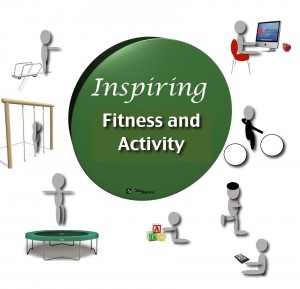 From smartwatches to fitness tracking devices wearable technology has come a long way. You can buy glucose detecting contact lens, clothes that correct your posture, running shorts that give you real time audio feedback, leggings that measure your shape and make clothes shopping easier, heated trousers that warm up your muscles, and all manner of clothing and devices that track biometric information. You can learn how many calories you’ve burned, how well (or not) you slept last night, where, how far and how fast you ran/walked/cycled/swam. The list goes on and new items are being created even as we speak.
From smartwatches to fitness tracking devices wearable technology has come a long way. You can buy glucose detecting contact lens, clothes that correct your posture, running shorts that give you real time audio feedback, leggings that measure your shape and make clothes shopping easier, heated trousers that warm up your muscles, and all manner of clothing and devices that track biometric information. You can learn how many calories you’ve burned, how well (or not) you slept last night, where, how far and how fast you ran/walked/cycled/swam. The list goes on and new items are being created even as we speak.
I have a lot of questions about wearable technologies, especially the ones designed to improve our fitness and health. Do they actually work? Are people becoming fitter? Are they motivating?
An article in Scientific American[1] states, “These devices are succeeding not because of their scientific qualities but because of their motivational ones…What the fitness bands do is to keep these issues front-of-mind. There it is, every time you turn on your phone: the latest stats on your progress. Most also show the results of friends who wear the same brand; it’s fitness through humiliation”.
Well, the last part of that certainly rings true when I think of my friends who own these devices. The competition can be fierce when it comes to step counting!
There is some contradictory research about these devices. Some researchers claim that pedometers are as motivating as fancy fitness trackers while others claim the opposite. Some claim that people stop using the devices in a relatively short period of time while other researchers find that users like and keep using them. Are there long term effects? Do the behaviours these devices are designed to encourage stick long after we stop wearing the device? There are also questions about the privacy and security of the data that is collected.
It’s worth it to keep asking ourselves these questions and to think about ways in which we, as counsellors, may be able to use these technologies in our work with clients.
Dawn M. Schell, MA, CCC, CCDP is an affiliate of Worldwide Therapy Online Inc. http://www.therapyonline.ca
[1] http://www.scientificamerican.com/article/fitness-trackers-are-everywhere-but-do-they-work/
*The views expressed by our authors are personal opinions and do not necessarily reflect the views of the CCPA

